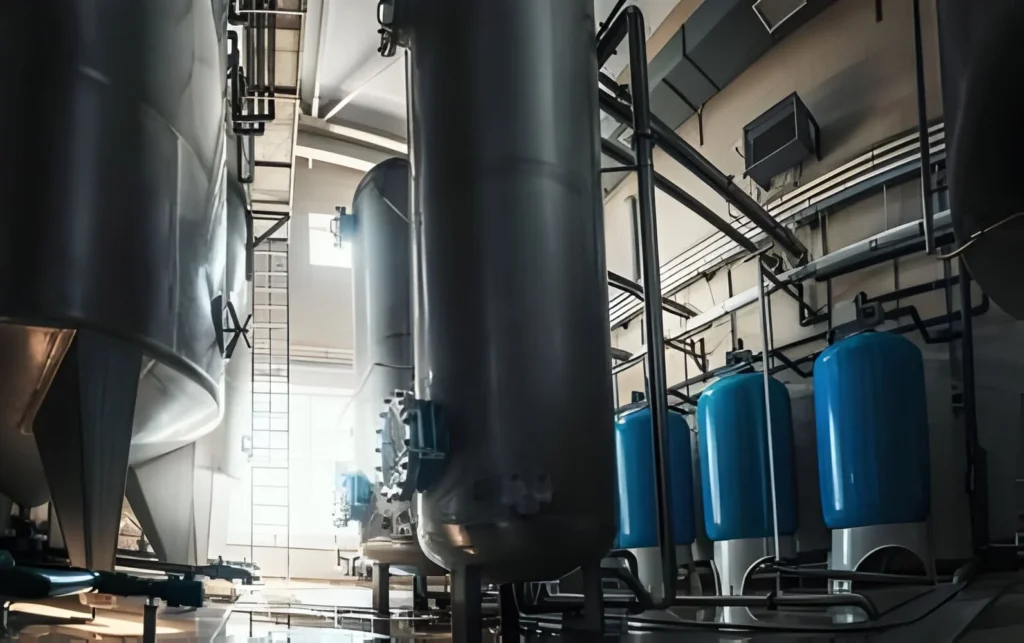The Positive Environmental Impact of Potable Water Treatment Plants
For millennia, humans have sought ways to purify water for safe consumption. Today, this essential task falls on the capable shoulders of potable water treatment plants. These marvels of modern engineering serve not only to safeguard public health but also to exert a profoundly positive influence on our environment. As a leading potable water treatment plant supplier in Dubai, Gulf Water Treatment recognizes the critical role these facilities play in ensuring a sustainable future.
Guardians of Public Health: Combating Waterborne Illnesses
Unsafe drinking water remains a significant global threat, with millions succumbing to waterborne illnesses annually. Contaminated water harbours a pathogenic menagerie—bacteria, viruses, and parasites—ready to wreak havoc on our health. Potable water treatment plants act as our frontline defence, employing a multi-stage purification process. Techniques like , filtration, and disinfection effectively remove these contaminants, rendering the water safe for human consumption. By providing access to clean drinking water, these facilities drastically reduce the incidence of waterborne diseases, safeguarding public health and promoting well-being.
Unsafe drinking water remains a significant global threat, with millions succumbing to waterborne illnesses annually. Contaminated water harbours a pathogenic menagerie—bacteria, viruses, and parasites—ready to wreak havoc on our health. Potable water treatment plants act as our frontline defence, employing a multi-stage purification process. Techniques like coagulation, filtration, and disinfection effectively remove these contaminants, rendering the water safe for human consumption. By providing access to clean drinking water, these facilities drastically reduce the incidence of waterborne diseases, safeguarding public health and promoting well-being.
Ecosystem Protectors: Minimising Pollution and Eutrophication
The environmental benefits of potable water treatment extend far beyond the tap. Untreated wastewater, laden with pollutants like organic matter, heavy metals, and harmful chemicals, poses a serious threat to our aquatic ecosystems. When discharged directly into rivers, lakes, and oceans, this contaminated water wreaks havoc. The influx of nutrients, a phenomenon known as eutrophication, can trigger explosive algal blooms. These blooms deplete oxygen levels in the water, creating vast dead zones devoid of marine life. Potable water treatment plants play a vital role in mitigating this ecological devastation. The treatment process removes these harmful pollutants, rendering the wastewater significantly less toxic before it is released back into the environment. This safeguard helps protect our delicate aquatic ecosystems, promoting biodiversity and a healthy environment.
Sustainable Solutions: Resource Recovery and Energy Efficiency
Innovation in the field of potable water treatment is constantly pushing the boundaries of sustainability. Modern facilities are increasingly incorporating resource recovery techniques, transforming what was once considered waste into valuable resources. For instance, the treatment process often generates biosolids, a nutrient-rich byproduct. These biosolids can be processed and repurposed as fertiliser, enriching the soil and reducing our reliance on chemical alternatives. Additionally, advancements in technology are leading to more energy-efficient treatment processes. By employing methods like ultraviolet disinfection or membrane filtration, potable water treatment plants are significantly reducing their carbon footprint. These sustainable practices not only lessen environmental impact but also contribute to a circular economy, promoting responsible resource management.

As a leading potable water treatment plant supplier in Dubai, Gulf Water Treatment is committed to providing innovative and sustainable solutions. We recognize the critical role these facilities play in safeguarding public health and protecting our environment. By investing in advanced treatment technologies, we can ensure a future where clean water flows freely, fostering a healthy society and a thriving planet.

